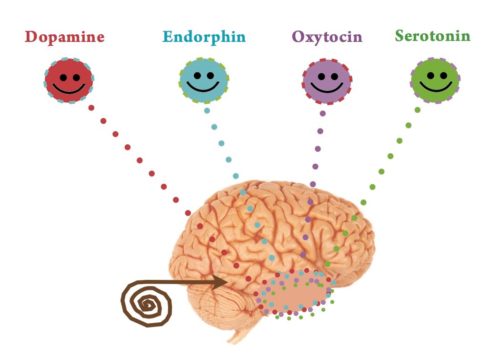

Other mental benefits include:īy making running or jogging (or any aerobic exercise) a regular part of your routine, you stand to earn more than just physical gains over time.

What’s more, the hippocampus - the part of the brain associated with memory and learning - has been found to increase in volume in the brains of regular exercisers.

“It blunts the brain’s response to physical and emotional stress.” Localized inflammation of a rats hindpaw elicits an accumulation of beta-endorphin-(END) containing immune cells. “Exercise has a dramatic antidepressive effect,” says Linden. Exercise may also produce new brain cells in certain locations through a process called neurogenesis, which may lead to an overall improvement in brain performance and prevent cognitive decline. The mental benefits don’t stop when you finish your run - regular cardiovascular exercise can spark growth of new blood vessels to nourish the brain. Unlike endorphins, endocannabinoids can move easily through the cellular barrier separating the bloodstream from the brain, where these mood-improving neuromodulators promote short-term psychoactive effects such as reduced anxiety and feelings of calm. That relaxed post-run feeling may instead be due to endocannabinoids - biochemical substances similar to cannabis but naturally produced by the body.Įxercise increases the levels of endocannabinoids in the bloodstream, Linden explains. Research shows that endorphins do not pass the blood-brain barrier. “Indeed, many distance runners feel merely drained or even nauseated at the end of a long race, not blissful,” says Linden.Īnd though endorphins help prevent muscles from feeling pain, it is unlikely that endorphins in the blood contribute to a euphoric feeling, or any mood change at all. Surveys have revealed runner’s high to be rather rare, however, with a majority of athletes never experiencing it. Popular culture identifies these as the chemicals behind “runner’s high,” a short-lasting, deeply euphoric state following intense exercise. When you start out on your run, your body goes through a transition: Your breathing may become heavy, and you might notice your pulse quicken as the heart pumps harder to move oxygenated blood to your muscles and brain.Īs you hit your stride, your body releases hormones called endorphins. According to a small 2010 study, 12 participants saw more of an endorphin boost when exercising (rowing) in a group than when they did similar exercise alone.What Happens to Your Body - and Brain - During a Run Group exercise may give you a better endorphin boost.You can talk, but you might be a bit short of breath, and you’ll probably sweat at least a little. Moderate exercise means your heart rate and breathing speed up. A 2017 study found that 22 participants experienced euphoric feelings linked to endorphin release after an hour of moderate-intensity exercise. Moderate-intensity exercise may be best.Studies have long suggested that exercise triggers the release of feel-good hormones, or. Research from 2011 suggests endorphin release occurs after 30 minutes of exercise. Endorphin release differs by exercise intensity, study finds. We show that singing, dancing and drumming all trigger endorphin release (indexed by an increase in post-activity pain tolerance) in contexts where merely listening to music and low energy musical activities do not. Endorphin release is linked to continuous exercise. endorphin release, we ask whether it is the auditory perception of music that triggers this effect or the active performance of music.If you’re looking for an endorphin boost, here’s a few things to keep in mind: While you’re likely to see more benefits from more exercise, any amount is better than none. Its mental health benefits are just as impressive, thanks in large part to endorphins. The physical benefits of exercise can’t be denied.


 0 kommentar(er)
0 kommentar(er)
